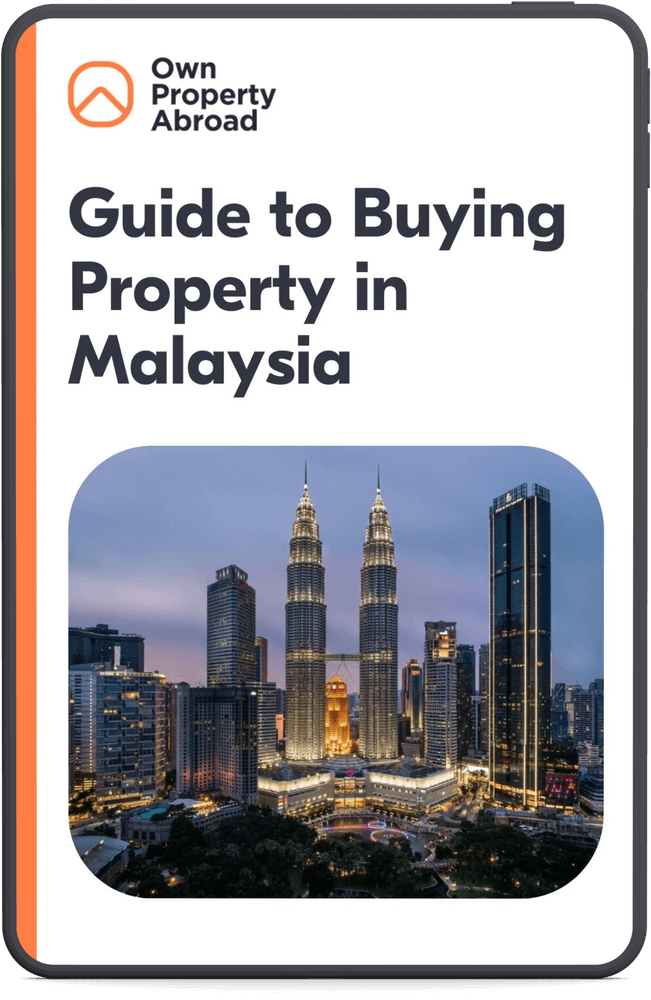Legal requirements for foreigners
Starting a property rental business in Malaysia requires business registration with the Companies Commission of Malaysia or Suruhanjaya Syarikat Malaysia (SSM). This registration legitimizes the business entity and ensures adherence to government regulations, such as imposing property rental income tax in Malaysia. The various company structures available for establishing a property rental business in Malaysia include:
- Sole proprietorship: This is the simplest structure for setting up a property rental in Malaysia. It requires only one owner, but the owner’s liability is unlimited, meaning personal assets are not protected in case of bankruptcy. Only Malaysian citizens or permanent residents can register this entity.
- Partnership: This type of business involves two or more owners, up to a maximum of 20, who share profits and liabilities. Like sole proprietorships, partners’ liabilities are also unlimited.
- Private limited companies (Sdn Bhd): These are separate legal entities that shield owners’ assets, which can be a company structure for a property rental in Malaysia, most common for foreign investors. They require at least one and up to 50 members; in some industries, 50% Malaysian ownership is needed.
- Public limited company (Bhd): Operates similarly but can offer shares to the public and is governed by the Securities Commission of Malaysia.
Valuable insights and practical advice, distilled from years of expertise and real-world experience.


Furthermore, business registration is a stringent process required to obtain a license for a property rental business in Malaysia. These licenses and permits are divided into general, industry-specific, and sector-specific licenses. The Business License, also known as the Business Premises License, falls under the general license category and is necessary for running most businesses, including property investment in Malaysia. This business license is obtained from the local council in the district where the property rental business operates.
Generally, the application requires a completed Business Premises License form, a copy of the business registration from SSM, an identity document (identity card or passport), and four photographs (two of the exterior and two of the interior of the business premises). Failure to obtain a business license can result in severe penalties, including fines of up to RM 20,000 ($4,512), asset confiscation, and suspension of the business.
Types of property rentals in Malaysia
Foreigners can choose from various types of property rentals. Factors, including the location and the nature of the rental business, play a role in deciding what to choose for a property rental business in Malaysia. Below is a list of options available to foreigners.
Short-term rentals
Short-term rentals are housing options where tenants rent a property for a short period. They are ideal for those needing temporary accommodation, such as vacationers or business travelers. Short-term rentals do not require extended lease agreements. Listed below is the property rental business in Malaysia for short-term stays, including:
- Airbnb: Airbnb (ABNB) is an online platform that connects homeowners with travelers seeking accommodations. Today, Airbnb offers over 7 million listings across over 100,000 cities and towns in over 220 countries. Starting a property rental business in Malaysia with Airbnb is a lucrative venture. An Airbnb in Kuala Lumpur is booked for 204 nights annually, with a median occupancy rate of 56% and an average daily rate of RM 199 ($44.89). In 2023, the average host income was RM 40,000 ($9,024). As of April 2025, the city has 19,278 active Airbnb listings.
- Holiday homes: Another property rental business in Malaysia that has gained attraction is holiday homes. Also known as vacation rentals, holiday homes have increased in demand due to Malaysia’s thriving tourism. In 2023, Malaysia received 231 million visitors, including 20.1 million international tourists and 210.9 million domestic travelers. In the same year, the vacation rentals segment of Malaysia’s travel and tourism market generated a revenue of one billion U.S. dollars. This revenue is projected to grow steadily between 2024 and 2027 at a compound annual growth rate (CAGR) of 7.09%.
Long-term rentals
Long-term rentals involve leasing residential properties for an extended period, usually six months or more. This property rental business in Malaysia requires a lease agreement between the lessor and lessee. In Malaysia, the minimum tenancy period for renting a house is typically one year, with the option to renew for an additional year. However, many long-term rental agreements often include a 2-year tenancy period, possibly extending it up to a maximum of 3 years. Below is a list of property business rentals in Malaysia offering long-term stays:
- Residential: The monthly rent in Kuala Lumpur for residential properties in Malaysia is RM 4,152 ($937) for a house, RM 1,845 ($416) for a condo, and RM 1,128 ($254) for an apartment. In Johor Bahru, monthly rent can cost RM 1,345 ($303) for a house, RM 1,538 ($347) for a condo, and RM 1,125 ($254) for an apartment.
- Commercial: Commercial spaces are in demand for property rental business in Malaysia. Renting a commercial property can cost RM 8,380 ($1,891) in Kuala Lumpur, RM 3,256 ($735) in Johor Bahru, and RM 4,578 ($1,033) in Penang.
Buying property as a foreigner in Malaysia
The Malaysia property rental yield is promising, with a 5.24% yield in the third quarter of 2024, higher than the 5.16% reported in quarter one. This makes property investment in Malaysia attractive to foreign investors. However, they must adhere to specific regulations and restrictions on foreign property ownership, including:
- Property price threshold: Each state sets a minimum purchase price for foreign buyers. Typically, foreigners cannot purchase properties below RM 1 million ($225,600).
- Malay Reserved Land: Properties located on Malay Reserved Lands are exclusively for Malays and cannot be rented or sold to foreigners.
- Low- and medium-cost housing: This type of housing is reserved for Malaysian citizens and cannot be rented or sold to foreign buyers.
- State and regional law variations: Under Malaysia’s Federal Constitution, land laws and property restrictions differ by state and federal territory. As a result, foreigners should thoroughly research local regulations before making a purchase.
Furthermore, starting a property rental business in Malaysia is more accessible due to the various financing options available. For those foreigners with visas under the Malaysia My Second Home (MM2H) program, securing a loan is generally more straightforward due to its government-backed visa program, which reduces bank concerns about potential loan default. MM2H visa holders have loanable amounts reaching 60-70% of the property’s market value compared to non-MM2H, with loans covering only 50-60%.
Outside the MM2H program, loan eligibility can vary based on whether the bank is local or foreign. Local banks may have stricter conditions, often requiring high net worth (RM 1 million ($225,600) in assets) or a minimum 5-year residency in Malaysia, along with other forms of collateral. On the other hand, the loan eligibility requirements and document submission process for foreign applicants in foreign banks are generally similar to those for Malaysian applicants.

Taxation and financial considerations
Establishing a property rental business in Malaysia is subject to income and property taxes. Below are the different taxes levied on Malaysia rental property:
Rental income tax
Every business owner renting out properties must pay property rental income tax in Malaysia, according to the Income Tax Act of 1967. However, only those eligible to pay Rental Income Tax are legally required, including those with rental income exceeding a certain threshold. Moreover, tax residents are subject to a progressive tax rate. Since January 1, 2018, rental income in Malaysia has been taxed at a progressive rate, ranging from 0% to 30% for tax residents. However, the property rental income tax for foreigners and non-tax residents is a fixed rate of 30% rather than a progressive rate.
Valuable insights and practical advice, distilled from years of expertise and real-world experience.


Property Stamp Duty (Memorandum of Transfer)
In Malaysia, Property Stamp Duty is a tax applied to legal, commercial, and financial documents, such as agreements, contracts, and deeds, to formalize and authenticate them. Foreigners buying properties to start a property rental business in Malaysia must pay stamp duty for the Memorandum of Transfer (MOT) of property ownership. Stamp duty is generally a flat 4% for non-citizens and foreign-owned companies unless they have permanent resident status.
Loan Agreement Stamp Duty
Starting a property rental business in Malaysia may require foreigners to get a loan; in this case, a Loan Agreement Stamp Duty is necessary. It is a tax applied to formal loan agreements, ensuring their legal validity and accurate documentation. Stamp duty on loan agreements is capped at 0.5% of the loan amount. However, for unsecured loans, where no collateral is required, the rate is reduced to 0.1%. For foreign currency loan agreements, the stamp duty is capped at RM 2,000 ($451).
Cukai Taksiran
Cukai Taksira, also known as Cukai Pintu, is a local property tax imposed on owners to support public services and infrastructure. An owner of a property rental business in Malaysia is responsible for payment rather than the tenant. It is calculated based on the estimated annual rental value of the property, with rates varying by state and locality, generally ranging from 2-7% of that value.
Cukai Petak
Parcel Rent (Cukai Petak) is a property tax in Malaysia that specifically targets owners of stratified properties, such as apartments, condominiums, and townhouses. An owner of a property rental business in Malaysia engaged in renting out stratified properties is responsible for paying this tax. This tax was previously included under Quit Rent, but in 2018, Selangor introduced Parcel Rent as a distinct tax, with Penang and Kuala Lumpur following suit in 2019 and 2020, respectively.
Steps to start a property rental business in Malaysia
Buying property investment in Malaysia and starting a rental business can be challenging. Follow this six-step process to start a successful property rental in Malaysia.
Step 1: Research the market
The first step in starting a property rental business in Malaysia is to research the market.
Analyzing property demand and rental trends by comparing data across different sources is essential to understanding the nuances of the rental business. Moreover, conducting thorough due diligence when buying properties and establishing your rental company is necessary. The country is known to have numerous tourist hotspots, and choosing a location for your rentals in one of these hotspots can positively impact your demand and increase your Malaysia property rental yield.
Step 2: Register your business in Malaysia
Selecting the appropriate company structure is the foundation of your property rental business in Malaysia. Business structures for property rental include sole proprietorships, partnerships, and companies. To register a property rental business in Malaysia with the Companies Commission of Malaysia (SSM), choose a business name and verify its availability in the SSM database. Next, gather the required documents, such as identity cards, passports, and proof of address. Complete the registration forms, select a suitable business structure, and pay the relevant registration fees.
Step 3: Purchase or lease property
Purchasing or leasing real estate to start a property rental business in Malaysia can differ from foreigners due to the foreign ownership restrictions. Foreigners must fully understand these restrictions to avoid legal disputes over their properties. Moreover, securing a financing option, including mortgages and loans, is available to foreigners; however, there can be additional requirements for approval.
Step 4: Comply with licensing and regulatory requirements
One of the essential steps in establishing a property rental business in Malaysia is to obtain a business license to operate. Moreover, understanding tenant rights is needed for renting out Malaysia rental property. Tenancy agreements are regulated by several laws, such as the Contracts Act of 1950 for tenancy conflicts, the Civil Law Act of 1956 for payment disputes, the Distress Act of 1951 for eviction, and the Specific Relief Act of 1950 prevents landlords from evicting tenants without a court order.
Step 5: Market your property rentals
Leverage online platforms to market your property rentals, such as iProperty Malaysia, PropertyGuru Malaysia, Maybank Property, and IQI Global. For specialized rentals, AirBnB is commonly used for both short-term and long-term stays, Stayzilla focuses on vacation rentals and serviced apartments, and Roomies Malaysia caters to shared accommodations and room rentals. You can also partner with real estate agents to market your rental properties. Rental property management in Malaysia is also a viable option for foreigners who want to have professional management companies handle their business.
Step 6: Manage the property and tenants
The last step is to hire property managers, if necessary, to manage the rental business. You can also seek rental property management in Malaysia to ensure compliance with rental agreements, repairs, and maintenance.
Need help starting a property rental business in Malaysia? We’re here to assist!
Starting a property rental business in Malaysia as a foreigner can be challenging, from setting up a company to finding the right property and navigating local regulations. Our comprehensive ebook is designed to guide you through every step, making sure your business setup is smooth, compliant, and successful. Whether you need full support or help with specific parts of the process, our ebook provides the insights you need to move forward with confidence. Want personalized assistance? Leave your details below, or email us directly at [email protected].
Valuable insights and practical advice, distilled from years of expertise and real-world experience.


Frequently Asked Questions (FAQs)
Can foreigners legally own and rent out property in Malaysia?
Yes, foreigners can legally own and rent out property in Malaysia, however, this is subject to foreign property ownership regulations and restrictions.
What types of taxes do I need to pay on rental income in Malaysia?
You will have to pay rental income tax in Malaysia as a property rental business owner, which is a fixed rate of 30% for foreigners and non-tax residents. Furthermore, as a property owner, you must pay property taxes, including Cukai Taksiran, and Cukai Petak.
Do I need a special license to run a property rental business in Malaysia?
Yes, you need a special license to run a property rental business in Malaysia. Standard licenses include a general business license or a Business Premise License. Foreign investors may also need approval to purchase and manage rental properties.
What are the best platforms to list my rental properties in Malaysia?
The best platforms to list your rental properties in Malaysia include iProperty Malaysia, PropertyGuru Malaysia, Maybank Property, and IQI Global. For specialized rentals, AirBnB is commonly used for both short-term and long-term stays, Stayzilla focuses on vacation rentals and serviced apartments, and Roomies Malaysia caters to shared accommodations and room rentals.
Is it worth investing in property in Malaysia?
Yes, it is worth investing in property in Malaysia because these properties can become rental businesses, generating a Malaysia property rental yield of 5.24% in the third quarter of 2024. Property investment in Malaysia for foreigners is available with only a few restrictions.
How much capital do I need to start property rentals in Malaysia?
The capital you need to start a property rental business in Malaysia could vary depending on the properties you want to turn into rentals. First, you must prepare more than RM 1 million ($225,600) to buy a property since foreigners are prohibited from buying properties valued at less than RM 1 million ($225,600). You must also pay registration fees for your business and the relevant property taxes.
What business type in Malaysia is best for rental properties?
The best rental property business types in Malaysia are Airbnb and vacation homes since the country’s tourism benefits from a massive influx of visitors annually. Long-term rentals like residential and commercial spaces are also in demand because of the country’s visa program for expats.



